Exports increase but not sustainable
According to the Vietnam Association of Seafood Exporters and Producers, in the first five months of 2024, seafood exports to the EU market reached 380 million USD, a slight increase of 0.5% over the same period in 2023. The EU accounts for 10.6% of Vietnam's total seafood exports. It is estimated that in the first half of 2024, seafood exports to this market will earn 466 million USD, an increase of 1.7%.
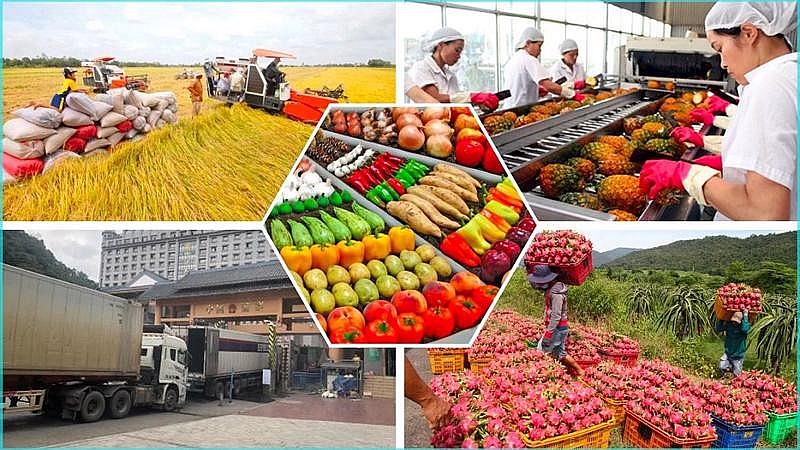 |
| The EU is currently the third largest market for Vietnamese agricultural products and food. |
Regarding rice, according to statistics from the General Department of Customs, in the first quarter of 2024, Vietnam exported nearly 46,000 tons of rice to the EU market, with a turnover of 41.4 million USD, an increase of nearly 118% over the same period last year. Notably, the French market increased dramatically with 18,200 tons equivalent to a value of 19.1 million USD, an increase of nearly 180 times over the same period. The increase in rice export turnover to the EU market is thanks to businesses that have been taking advantage of opportunities from the Vietnam - EU Free Trade Agreement (EVFTA Agreement).
If in 2022, fruit and vegetable exports to the EU market reached over 200 million USD, then in 2023 it reached nearly 300 million USD. According to the Vietnam Fruit and Vegetable Association, it is expected that in 2024, fruit and vegetable exports to this market will grow by 20% or more.
Mr. Tran Van Cong - Agricultural Counselor, Vietnam Delegation to the EU - said that every year, the European market spends about 300 billion USD importing agricultural products worldwide. Of which, the fruit and vegetable group alone spends about 60 billion USD. Thus, there is great potential for Vietnam's fruit and vegetable exports.
Although the market is very potential, however, this is also a market with many strict, scientific and technical requirements. Among the 5 agricultural and food products of Vietnam that are subject to control when exporting to the EU market, while Vietnam's instant noodles are no longer subject to food safety control, durian is on the list of products monitored at EU border gates with a frequency of 10%, some Vietnamese fruit and vegetable products have recorded not very positive information.
Specifically, the EU has increased the frequency of border inspections for dragon fruit from 20% to 30%, and each shipment is accompanied by a Food Safety Certificate and results of analysis and testing of residual pesticides in the product. Chili products currently subject to the EU's application in Appendix I (inspection frequency is 50%) have been transferred to Appendix II of Regulation 2019/1793, with an inspection frequency of 50%, and each shipment is accompanied by a Food Safety Certificate and results of analysis and testing of residual pesticides in the product. The EU still applies the inspection frequency of okra to Appendix II of Regulation 2019/1793, with an inspection frequency of 50%, and each shipment is accompanied by a Food Safety Certificate and results of analysis and testing of residual pesticides in the product.
And recommendations for Vietnamese businesses
Mr. Tran Ngoc Quan - Vietnam Trade Office in Belgium and the EU - informed that on May 24, the European Council approved the directive on the responsibility of assessing the sustainability of large enterprises. Previously, on May 14, the European Parliament and Council issued a Directive amending regulations related to some types of agricultural and food products in the previous directives of the European Council to implement the Green Deal goals, the farm-to-table strategy to create a fairer, healthier, more environmentally friendly and sustainable food system. This is an issue that Vietnamese agricultural product exporting enterprises need to pay special attention to.
Regarding the aquaculture industry, Mr. Le Hoang Lam - Director of the Center for Quality of Agricultural, Forestry and Fishery Products Region 3 announced - informed that in addition to the general requirements, the EU also requires a number of additional issues, such as the exporting country must develop, implement and be recognized by the EU for a national monitoring program on chemical and antibiotic residues in farmed aquatic products. Or bivalve mollusks must develop and have the EU recognize a program to monitor the hygiene and safety of the harvesting area.
According to industry experts, transparency in information and quality is one of the top requirements when exporting agricultural and food products to the EU market.
Mr. Luong Ngoc Quang - specialist of the Department of International Cooperation and Communications of the Plant Protection Department (Ministry of Agriculture and Rural Development) - said that for the EU market, all shipments must meet the requirements that the products must not be on the list of plants and plant products banned or temporarily suspended from import into EU countries; not be contaminated with EU plant quarantine objects and almost not be contaminated with other pests; wooden packaging materials must meet international standards for wooden packaging materials (ISPM-15)...
Notably, the EU is particularly concerned about fruit flies on fruit and vegetable products, so it is necessary to negotiate a treatment plan. In addition, when exporting fresh fruit products, cashew nuts, coffee, etc. to the EU, the EU requires that the goods must meet the same standards and be equivalent to the standards currently applied in the EU.
Deputy Director of the Vietnam SPS Office Ngo Xuan Nam said that currently, every month, the Vietnam SPS Office receives about 100 notifications and drafts on changes to SPS measures, including drafts on changes to residue levels of pesticides, veterinary drugs, quarantine objects, regulations on materials in contact with products, etc. SPS regulations are mandatory regulations, if we violate them, we will be warned by import partners. This will affect and cause damage to businesses, especially affecting the entire industry and brands of Vietnamese agricultural products in the international market.
Although Vietnamese enterprises have gradually become accustomed to the "strictness" of the EU and have made preparations to overcome technical barriers, Mr. Dang Phuc Nguyen - General Secretary of the Vietnam Fruit and Vegetable Association still noted that this market pays special attention to food hygiene and safety, products that meet standards, and do not contain pesticide residues. Therefore, before exporting to the EU, enterprises focus on testing and controlling pesticide residues to avoid the goods being discovered upon arrival and having to be destroyed or returned.
In addition, Vietnamese agricultural export enterprises need to regularly update and comply with EU regulations. This not only helps Vietnamese agricultural products gain prestige but also lays the foundation for expanding and conquering more export markets around the world, thereby enhancing the position of Vietnamese agricultural products.
Source: https://congthuong.vn/chat-luong-minh-bach-thong-tin-chia-khoa-de-nong-san-viet-vao-thi-truong-eu-326421.html


![[Photo] General Secretary concludes visit to Azerbaijan, departs for visit to Russian Federation](https://vphoto.vietnam.vn/thumb/1200x675/vietnam/resource/IMAGE/2025/5/8/7a135ad280314b66917ad278ce0e26fa)
![[Photo] President Luong Cuong presents the decision to appoint Deputy Head of the Office of the President](https://vphoto.vietnam.vn/thumb/1200x675/vietnam/resource/IMAGE/2025/5/8/501f8ee192f3476ab9f7579c57b423ad)

![[Photo] General Secretary To Lam begins official visit to Russia and attends the 80th Anniversary of Victory over Fascism](https://vphoto.vietnam.vn/thumb/1200x675/vietnam/resource/IMAGE/2025/5/8/5d2566d7f67d4a1e9b88bc677831ec9d)
![[Photo] Prime Minister Pham Minh Chinh meets with the Policy Advisory Council on Private Economic Development](https://vphoto.vietnam.vn/thumb/1200x675/vietnam/resource/IMAGE/2025/5/8/387da60b85cc489ab2aed8442fc3b14a)
![[Photo] National Assembly Chairman Tran Thanh Man chairs the meeting of the Subcommittee on Documents of the First National Assembly Party Congress](https://vphoto.vietnam.vn/thumb/1200x675/vietnam/resource/IMAGE/2025/5/8/72b19a73d94a4affab411fd8c87f4f8d)


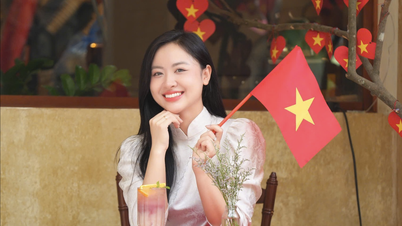



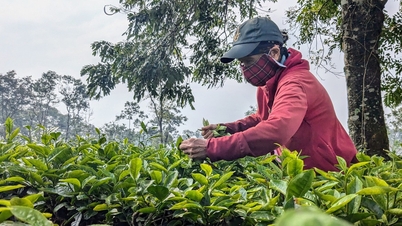


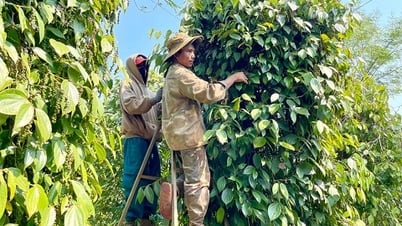



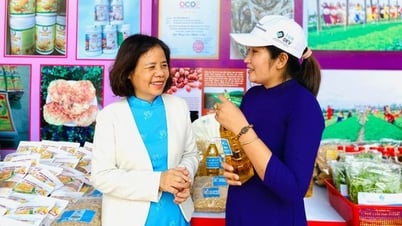







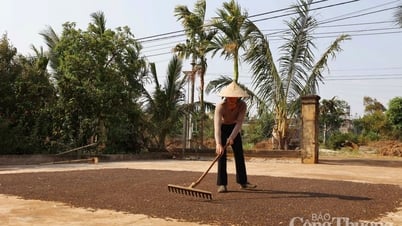
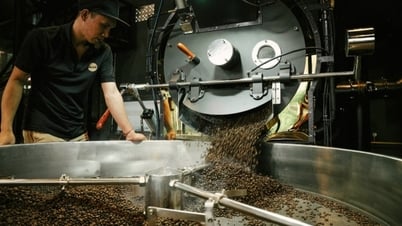































![[Photo] Prime Minister Pham Minh Chinh talks on the phone with Singaporean Prime Minister Lawrence Wong](https://vphoto.vietnam.vn/thumb/402x226/vietnam/resource/IMAGE/2025/5/8/e2eab082d9bc4fc4a360b28fa0ab94de)






























Comment (0)